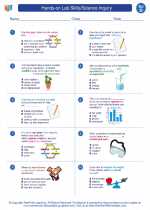The Pancreas
The pancreas is a vital organ located in the abdomen, behind the stomach. It plays a crucial role in the digestive and endocrine systems, producing important hormones and enzymes that help regulate blood sugar levels and aid in digestion.
Structure of the Pancreas
The pancreas is a long, flat gland that is divided into three main regions: the head, the body, and the tail. It is both an endocrine gland and an exocrine gland. The endocrine function involves the production of hormones such as insulin and glucagon, while the exocrine function involves the production of digestive enzymes that are released into the small intestine.
Functions of the Pancreas
Endocrine Function: The pancreas produces hormones such as insulin and glucagon, which are essential for regulating blood sugar levels. Insulin helps lower blood sugar levels, while glucagon helps raise them when they are too low.
Exocrine Function: The pancreas produces digestive enzymes such as amylase, lipase, and protease, which are released into the small intestine to help break down carbohydrates, fats, and proteins in the food we eat.
Common Disorders of the Pancreas
Some common disorders of the pancreas include:
- Diabetes: When the pancreas does not produce enough insulin or the body becomes resistant to the effects of insulin, it can lead to diabetes.
- Pancreatitis: This is inflammation of the pancreas, which can be acute or chronic and is often caused by excessive alcohol consumption or gallstones.
- Pancreatic Cancer: This is a serious and often aggressive form of cancer that affects the pancreas.
Study Guide Questions
- Where is the pancreas located in the body?
- What are the main functions of the pancreas?
- What are the two main types of functions of the pancreas?
- What are the names of the hormones produced by the pancreas?
- What are some common disorders of the pancreas?
◂Science Worksheets and Study Guides Fourth Grade. Hands-on Lab Skills/Science Inquiry

 Worksheet/Answer key
Worksheet/Answer key
 Worksheet/Answer key
Worksheet/Answer key
 Worksheet/Answer key
Worksheet/Answer key
